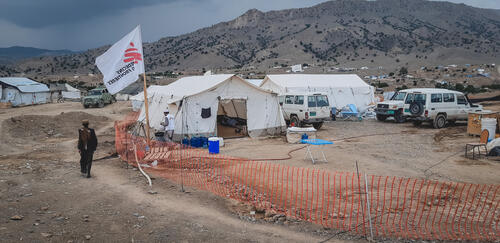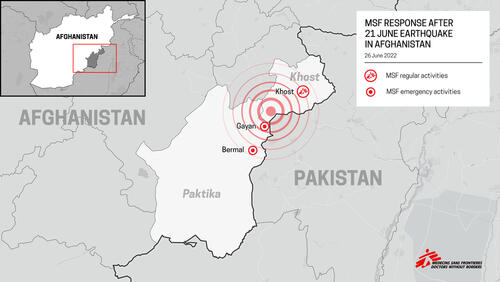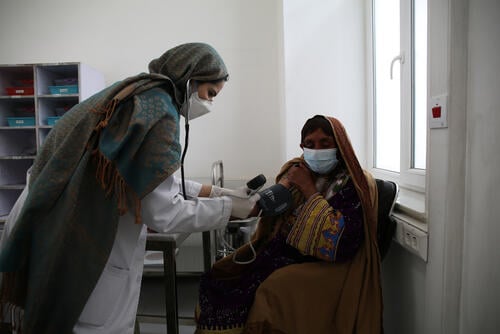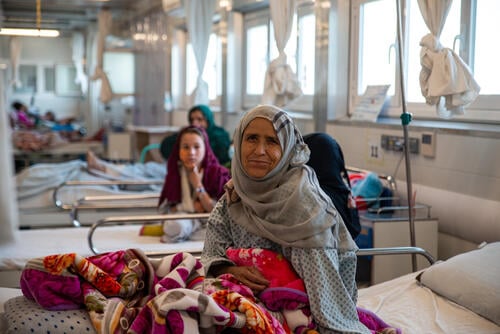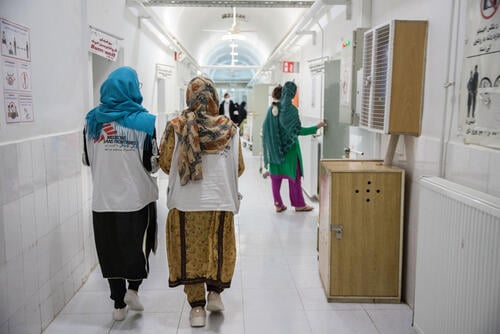On 28 July 2022, the last Médecins Sans Frontières (MSF) team left Paktika province, Afghanistan, after an emergency earthquake intervention. Over the course of five weeks more than 1,380 patients were treated in the MSF temporary clinic in Bermal, at first presenting with trauma injuries related to the earthquake and later with primary healthcare needs. Medical care in Bermal is scarce, and so trauma care in those first days of the crisis was invaluable.
During the night of 21 and 22 June, a 5.9 magnitude earthquake shook Khost and Paktika provinces in the east of Afghanistan. Spera District (Khost province), Gayan (Paktika province) and Bermal (Paktika province) were the most affected.
The following day, 23 June, MSF sent two emergency response teams, one from Kabul and one from Khost, to assess what medical care was available in the area. As the teams stopped to assess different areas, they donated tents and medical equipment before travelling on to their final destination, hard-to-reach Bermal.
“On our arrival we saw that the situation was precarious. Families and communities had lost almost everything, and they were living under the open sky. We realised that the closest healthcare facilities were almost 150 kilometres away,” says Dr Taufeeq, who was a member of the earthquake intervention team.
Three days after the earthquake, MSF set up trauma stabilisation activities, working alongside the Italian non-governmental organisation Emergency who secured the referrals. MSF provided trauma care as well as outpatient and inpatient care for female patients, and additional female staff members were sent from the Khost maternity project to support.
Trucks of medical, logistic, and water and sanitation materials also arrived from Kabul. After the first few days, the number of people coming to the clinic with acute watery diarrhoea started to increase and so isolation tents were also set up nearby.
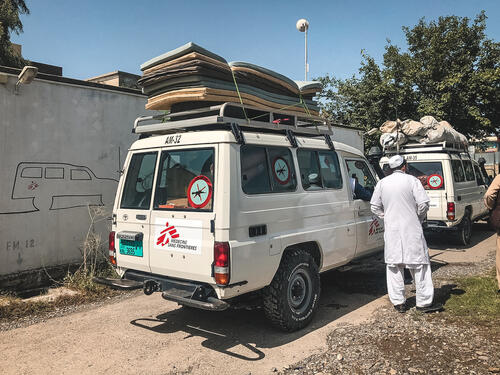
“Within the first 72 hours we were able to provide basic healthcare and trauma care to the affected population,” says Gaetan Drossart, Afghanistan Country Representative. “And the decision to close our activities after a few weeks was taken given the emergency nature of our response and the fact that other organisations were increasing their activities in Bermal.”
“But, access to healthcare in the area needs to be improved in a longer-term, sustainable way,” he says.
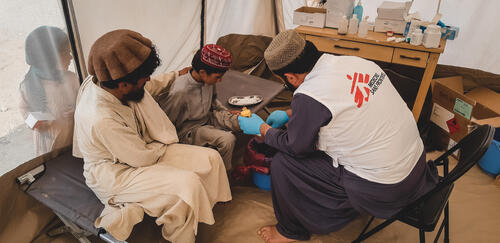
Just before the end of the intervention, in mid-July, MSF midwives assisted the first institutional delivery in the Lawara area of Bermal district – healthy twin girls. According to their mother, without care in Bermal she would have had to travel four hours by road to reach Urgun and it would have cost her 7,000 Afghani (US$80).
“I am very happy for my daughters,” she said. “We are all doing fine.”




